Chief Justice: Opening Of Bermuda’s Legal Year
“One of the main challenges facing any legal community in a financial centre dominated by international business interests is mastering the art of maintaining the extremely delicate balance between the interests of the moneyed few and the wage-dependent many,” Chief Justice Ian Kawaley said, adding that, “Disparities of wealth, both locally and globally, create not simply social tensions, but challenges and opportunities for judiciaries, legal systems and the communities they serve.”
The Chief Justice was speaking at the Special Sitting of the Supreme Court held on Friday [Jan 22] to mark the Ceremonial Opening of Bermuda’s 2016 Legal Year.
Speaking on criminal law, the Chief Justice said, “Criminal law in Bermuda has come a long way from the days when its main aim was to promote not only respect for but fear also fear of a legal order which deprived large swathes of the adult population of full legal status under the law. The criminal courts today not only recognise the rights of criminal defendants to an extent that would be marvelled at by past generations.”
Slideshow of the Special Sitting
.
In addressing those gathered, the Chief Justice also said, “Although restorative justice techniques seem likely to be deployed more out of court than within, I fully support the use of these ancient techniques developed in small communities which, with admittedly far less social stratification or cultural difference than we currently grapple with, achieved standards of social harmony and unity we would welcome today.
“There is, in a general sense therefore, a common philosophical strand underpinning the twin trends of increasingly resorting to restorative justice techniques in the criminal sphere and mediation in the family law sphere.”
The Chief Justice’s full remarks are below:
Good afternoon one and all and welcome to this Special Sitting to commemorate the opening of the Legal Year to Her Excellency the Acting Governor, other distinguished guests and members of the nuclear and extended Legal Family.
Special thanks are extended once again to the Bermuda National Museum for bringing the Admiralty Oar or Mace which was made for Bermuda’s courts as far back as 1697.
400th Anniversary
This year marks the 400th anniversary of the first sitting of the Court of General Assize on June 15, 1616. It will afford us an opportunity, over the course of the year, not simply to look back with pride and remember that our judicial and legal system is probably the oldest English-based court system in the New World. This anniversary also serves to remind us of the evolving function served by the courts and to compel us to think critically about what role the courts and the legal system as a whole ought properly to play in the Bermuda of today and tomorrow.
A Changing Cast of Characters
In looking back, we are reminded that the dramatis personae of the courts consists of an ever-changing cast of players. While this is not as such an occasion for saying farewells or paying tributes, I would be remiss not to mention in passing a few past and pending changes in the cast.
Firstly, His Excellency the Governor Mr George Fergusson has announced that his tenure will end this year. His establishment of a standing Judicial and Legal Services Committee has added an important new dimension to the way not just judicial appointments are considered. It has brought together a collection of wise heads to think about the Judiciary and its needs as a whole.
Secondly, Justice Norma Wade-Miller will retire in May after serving our Judiciary from Magistrate to Senior Puisne Judge for a period spanning 35 years. Over that period Bermuda’s economy shifted from a tourism-dominated economy to an international business-dominated economy. Reflective of that, the size of our legal profession has increased from roughly 100 practising lawyers in 1981 to roughly 500 in 2016. Justice Wade-Miller not only contributed to the development of all areas of the law [latterly focussing on Family law], but helped to make the courts more friendly to a wider range of court users and to shape our current vision of equal justice for all today.
Thirdly, Justice Carlisle Greaves, while no longer regularly on the stage, will still I hope make regular cameo appearances for at least two years, after 15 years of signal service as Magistrate and ending as Supervising Judge of the Criminal Trial List.
Fourthly, the scriptwriters have given Justice Charles-Etta Simmons a more prominent role as Supervising Judge of the Criminal Trial List. The Criminal jurisdiction of the Supreme Court remains in safe hands.
Fifthly, Ms Charlene Scott, the Registrar and Taxing Master, will be retiring at the end of March after a career in the Judicial and Legal Service which spans 21 years more than half which was served as Registrar and which includes several stints as Acting Puisne Judge. Further cameo appearances cannot be ruled out. She has been admirably performing the duties of what in most modern courts are two separate and senior posts: that of registrar and that of chief administrative officer.
Sixthly, Mr Peter Miller, the Assistant Registrar who has been Acting Registrar on numerous occasions, will be retiring later this year after a career in the Judicial and Legal Service spanning 20 years.
It is all change at the top of the Judicial Administrative tree and an opportunity for fresh horses to bring new energy to bear in challenging times.
Lastly, I should pay tribute to Sir Robin Auld whose tenure as a Justice of Appeal ended without fanfare in June of 2015. He served for seven years and made an invaluable contribution to the development of Bermuda law both when delivering majority and dissenting judgments.
The DPP, Mr Rory Field, is also demitting office in March after service over a very demanding period of Bermuda’s criminal law history of nearly 10 years. He has spoken frequently about the increasing breadth and depth of the work that the Office of the DPP handles. I am sure that all well-informed and impartial observers would agree that he has made a valuable contribution to Bermuda’s criminal justice system, established valuable links with other jurisdictions and international agencies and also promoted training for Bermudians. He will, I am sure, leave the Office of the DPP in good and stable standing. Thank you, Mr Field, for your contribution and good luck in your future endeavours.
We welcome today Mr Christian Luthi, Honorary Secretary of the Bermuda Bar Association deputizing for Mr Richard Horseman, the new President of the Bermuda Bar Association. One of the many Bar Council initiatives which I hope he will mention is a topic close to my heart, the introduction of contingency or conditional fees to promote enhanced and affordable access to justice.
Judicial Administration challenges
The longstanding Bermudian tradition of fobbing off the requests of the Judiciary for rational accommodation arrangements and more administrative autonomy has been respected by the current Government to an overly-zealous extent. However, I would like to retract the suggestion in last year’s Report that this benign neglect threatens the long-term health and stability of Bermuda’s Judiciary.
The best available evidence of the health of the Bermuda Judiciary over the last 400 years suggests that the patient is a distinctly robust and adaptive organism which survived numerous potentially life-threatening events over the years. It may well take what football commentators, describing a jarring but legal collision between two players, euphemistically refer to as a ‘coming together’ between the Judicial and Executive branches of Government to resolve some of the most pressing concerns. Overall, I am optimistic that solutions for our most pressing problems will be found long before the wheels come off the ‘Judicial Bus’.
I would like to thank the Administrative Staff, including the Registrar, the Assistant Registrar, the Court Managers [Mrs Dee Nelson-Stovell-Supreme Court and Ms Andrea Daniels-Magistrates Court] and all judicial officers for their sterling service over the last year. Despite staff shortages and logistical challenges, the overall output of the Judiciary as a whole has been, in my estimation, admirable.
Judicial outputs
One of the main challenges facing any legal community in a financial centre dominated by international business interests is mastering the art of maintaining the extremely delicate balance between the interests of the moneyed few and the wage-dependent many.
Disparities of wealth, both locally and globally, create not simply social tensions, but challenges and opportunities for judiciaries, legal systems and the communities they serve.
Modern life in Bermuda and elsewhere places particular strain on families. Happy families usually reflect emotionally healthy and nurturing relationships. Family health is often undermined by economic success and economic adversity, perhaps in different ways, but sometimes in equal measure. Children are frequently the casualties when parents choose the courts as a forum for the adversarial resolution of, in particular, access and custody disputes. The emotionally-charged nature of family proceedings often gives rise to complaints by the adult parties that their voice is not being adequately heard.
The first steps towards creating a Unified Family Court, recommended by the Family Law Reform Sub-Committee chaired by Justice Norma Wade-Miller in 2009, were taken in 2015. Most family cases are now heard in the Dame Lois Browne-Evans Building. More importantly still, a clear commitment has been made by the Family Judges [Justice Wade-Miller and Wor. Nicole Stoneham] and the Government to increasing the role to be played by mediation in solving family disputes in a manner designed to repair rather than further fracture the ability of parents who do not live together to make joint decisions about the upbringing of their children.
The Matrimonial Causes Rules have also been amended only this month to remove the requirement for petitioners in divorce cases to give oral evidence in Divorce Court. Further, mostly statutory, reforms recommended by the Justice for Families Report to simplify and modernise family proceedings remain outstanding. Further infrastructural changes are required to create the best possible physical space for family proceedings, especially those involving children, to take place. Family law in Bermuda has come a long way from the days
when the law regulated the assignment of ownership rights in respect of children born to slaves between the respective owners of the children’s parents.
Criminal law in Bermuda has come a long way from the days when its main aim was to promote not only respect for but fear also fear of a legal order which deprived large swathes of the adult population of full legal status under the law. The criminal courts today not only recognise the rights of criminal defendants to an extent that would be marvelled at by past generations. Last year the Judicial Committee of the Privy Council gave valuable guidance on the use of expert evidence relating to gangs and indirectly approved the fairness of our criminal trial process. The Honourable Attorney-General is to be commended for introducing important procedural reforms, abolishing preliminary inquiries and increasing the case management powers of the Supreme Court and Magistrates’ Court, which should increase the efficiency of the criminal trial process without comprising its fairness. In addition, the amendment to the Court of Appeal Act restoring the pre-1999 legal position according to which the Prosecution could appeal an acquittal based on a no case to answer ruling is particularly welcome. It was always unfair to a trial judge who made such a ruling to be deprived of the opportunity to be either corrected or vindicated on appeal.
Criminal trials on indictment continue to proceed at a good pace thanks to the combined efforts of the Criminal Judges and the Prosecution and Defence Bar. Only 13 indictments were outstanding at the end of 2015, four less than at the end of 2014. I should also acknowledge the valuable contribution the Magistrates’ Court Criminal Jurisdiction [Wor Khamisi Tokunbo and Wor Archibald Warner] has made in recent years by adjudicating numerous serious cases previously dealt with in the Supreme Court. England & Wales appear to be following our example. The Times reported this week that many criminal cases previously dealt with in the Crown Court will now be dealt with in the Magistrates’ Court.
The sentencing principles now enshrined in section 54 of the Criminal Code reflect a more balanced appreciation of the often conflicting aims of protecting the public from and appropriately punishing the truly dangerous, protecting and compensating victims of crime and reducing repeated offending by assisting the offender to play a productive role in society. We appear to be making steady, but sometimes halting, steps away from the swamp that our criminal justice system was once mired in where the dispossessed were often punished for being dispossessed. A recent press story identifying a link between poverty and crime reflects progress in public thinking on these matters.
Two years ago Prison Fellowship enquired whether the Judiciary would support its emergent Restorative Justice initiative. Justice of Appeal Patricia Dangor, who recently trained in England as Restorative Justice Facilitator, chaired a Centre for Justice Sub-Committee which included the Wor Juan Wolffe, Mrs Monica Jones, Mrs Sheridan Scotton and the Centre’s own Ms Venous Memari. The Centre’s impressively comprehensive Report recommends adopting a victim-focussed approach to restorative justice techniques designed to both divert offenders from mainstream criminal justice system for minor offences and to restore the health of both the victim and the offender. The Report focuses on restorative justice models in modern developed Commonwealth countries with legal systems closer to our own.
However, the Report acknowledges that the philosophical roots of restorative justice are far deeper when it states:
“Restorative traditions of law have been used in many parts of the world by indigenous elders over generations. This type of community justice allowed peace to prevail because offenders were required to take responsibility for their actions and to make amends to their victims.”
Modern western societies have borrowed from surviving elements of traditional indigenous law in sub-Saharan Africa, the Americas and Australasia, amongst others, an ancient solution for modern complex human relations and social disharmony problems. In light of the assumptions of European cultural superiority which have in the past and continue to sustain New World racism today, it surely cannot hurt [and may well help] to acknowledge that the ancestors of Bermudians of African and Native American descent came from societies which generated legal ideas and practical tools which still have resonance and utility today.
Although restorative justice techniques seem likely to be deployed more out of court than within, I fully support the use of these ancient techniques developed in small communities which, with admittedly far less social stratification or cultural difference than we currently grapple with, achieved standards of social harmony and unity we would welcome today. There is, in a general sense therefore, a common philosophical strand underpinning the twin trends of increasingly resorting to restorative justice techniques in the criminal sphere and mediation in the family law sphere.
The civil and commercial jurisdiction of the courts remains firmly within the orbit of more traditional yet modern legal influences [some may be relieved to hear!]. The Government Administration Building courts often resemble cement mixers into which lawyers pour submissions. The judges duly churn out judgments like mixed cement hoping that, when the mixture hardens, there will not be too many cracks. Last year the number of published judgments was up by 80% over 2014, with Justice Stephen Hellman in typically hyperactive mode. To help shoulder this dramatically increased burden, the Governor has appointed David Kessaram and Delroy Duncan as new civil Assistant Justices. Under an arrangement agreed with Bar Council a few years ago, they have agreed to accept terms under which they will receive only nominal sitting fees.
I hope that the Attorney-General will consider increasing the civil jurisdiction of the Magistrates’ Court as well as the current $25,000 limit is far too low. While the plates of the civil Magistrates [the Senior Magistrate and Wor Tyrone Chin] are already full, I am sure they would welcome the addition of a bit more protein to their judicial diet.
The steady flow of commercial and trust cases, in particular, reflect the extent to which the Judiciary plays a central role in supporting the primary pillar of Bermuda’s economy. In this regard, the individuals and institutions affected directly and indirectly by our decisions are spread around the globe. Earlier this month, by way of illustration, the Commercial Court received invitations from colleagues in two of the world’s leading international financial centres to join a network of commercial courts with a view to enhancing the quality of adjudication in cross-border commercial cases.
Conclusion
In celebrating 400 years of Bermudian legal history since courts were first established in permanent form here, we can hopefully demonstrate that the various jurisdictions of the Courts working with our key stakeholders help to make Bermuda not only a commercially-savvy investment destination, but also a people-friendly legal jurisdiction; a legal jurisdiction that citizens, residents and investors alike can be proud to call home.

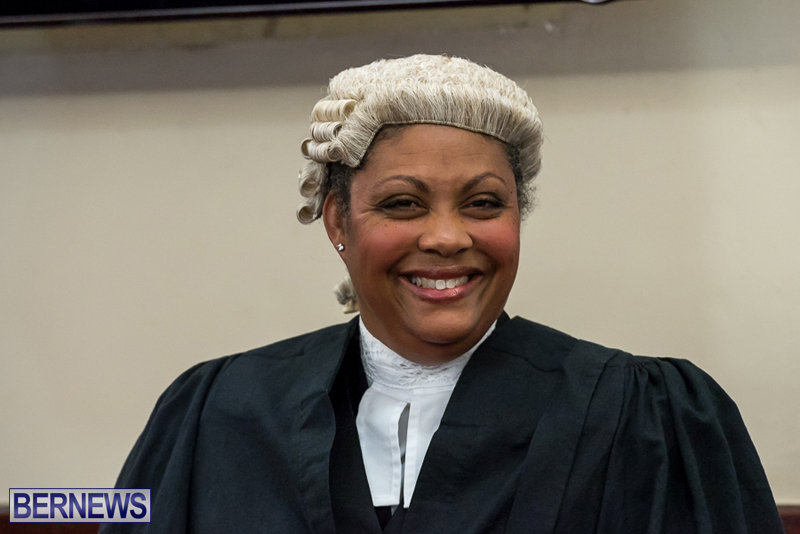
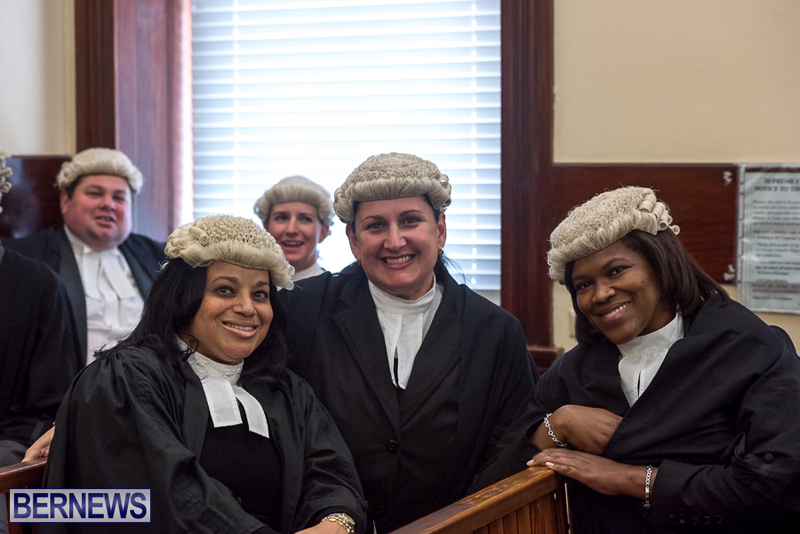
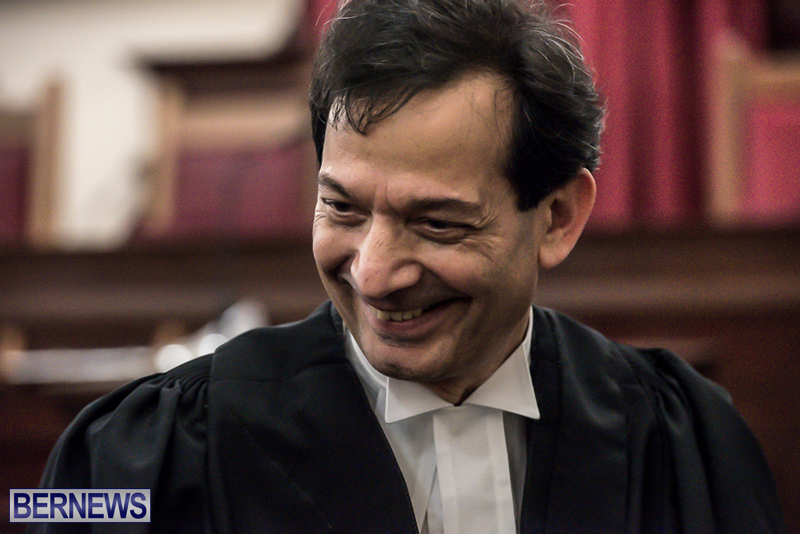
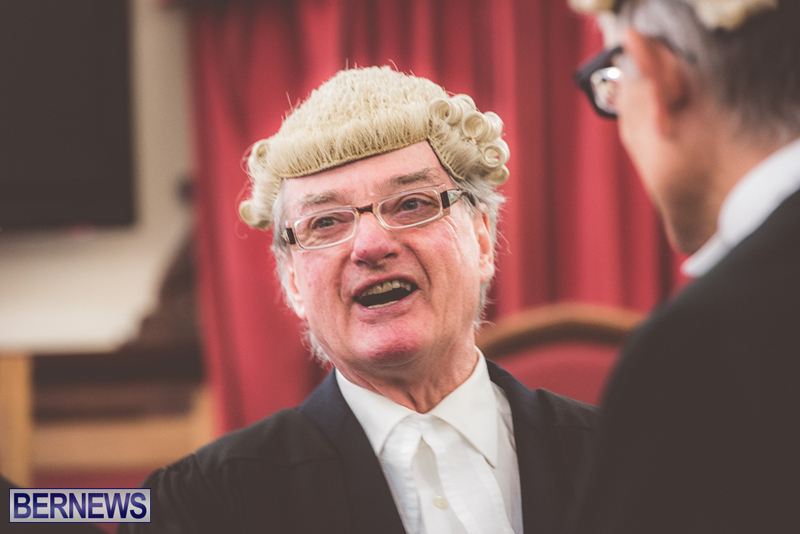
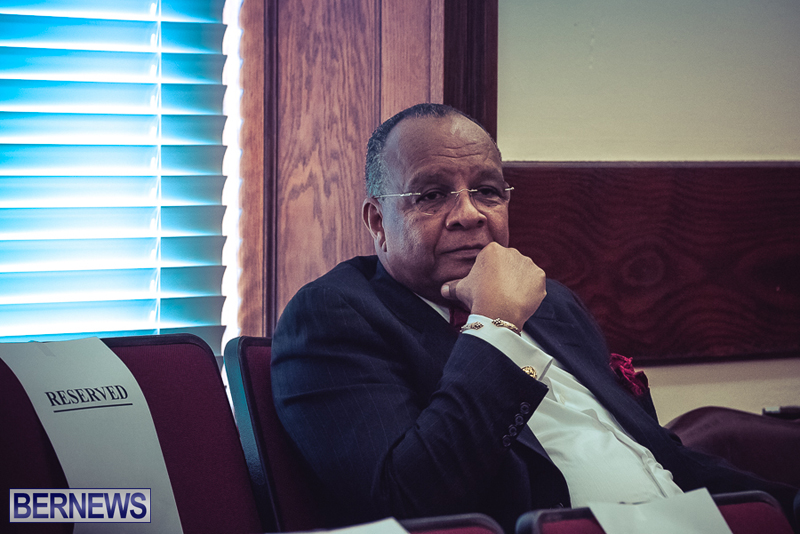
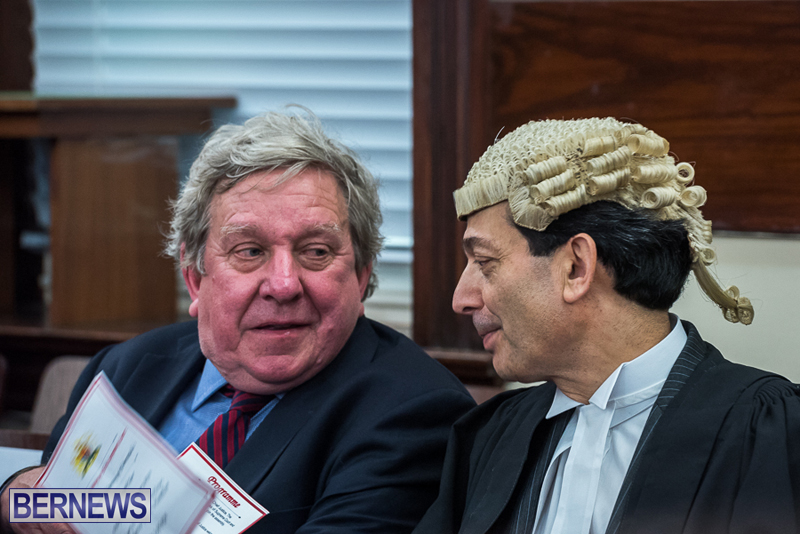
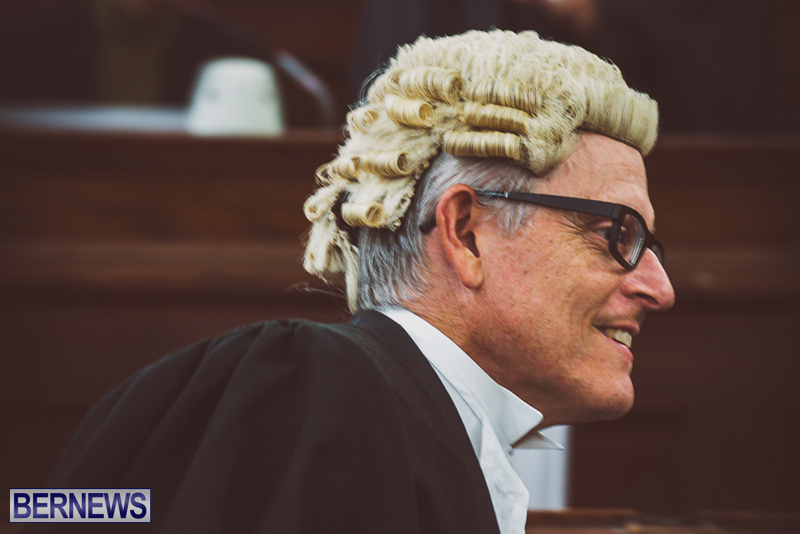
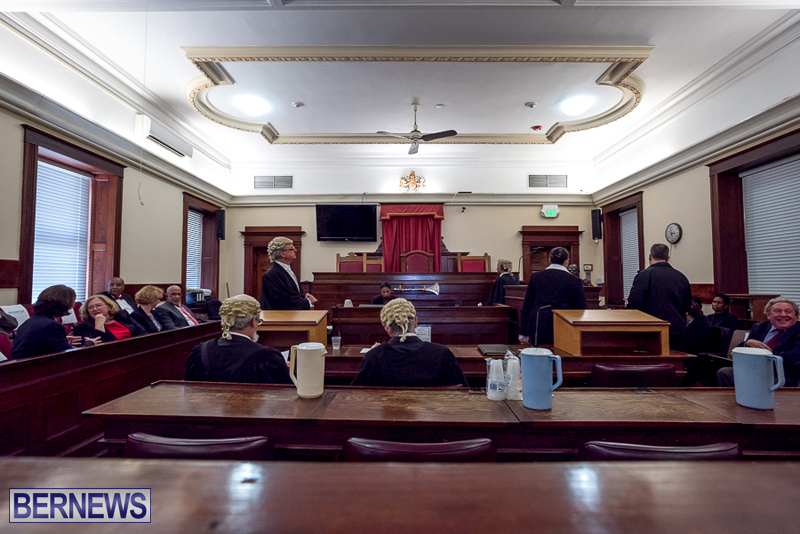
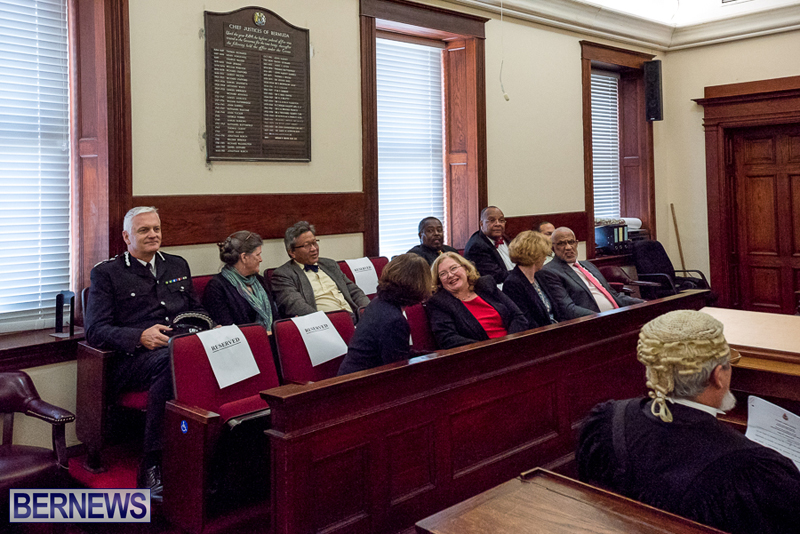
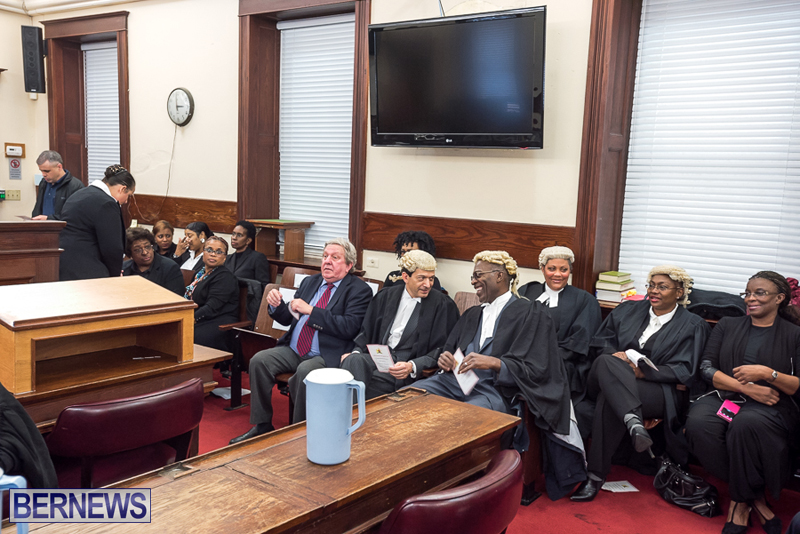
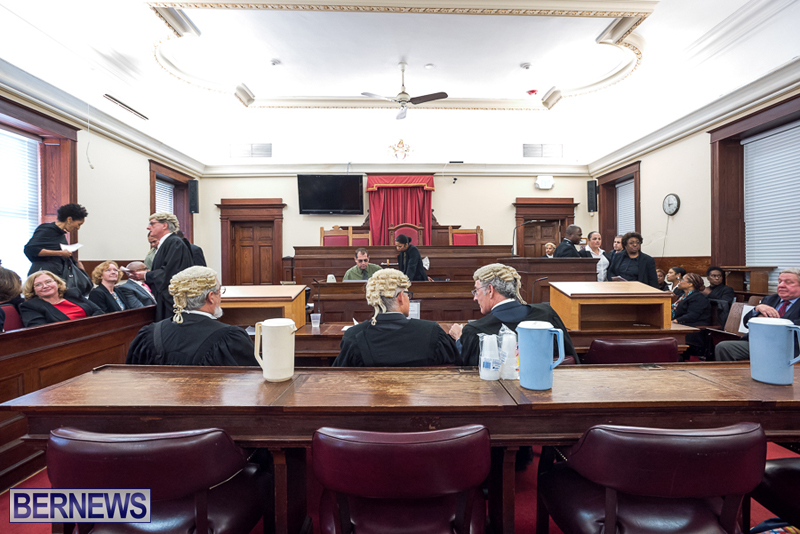
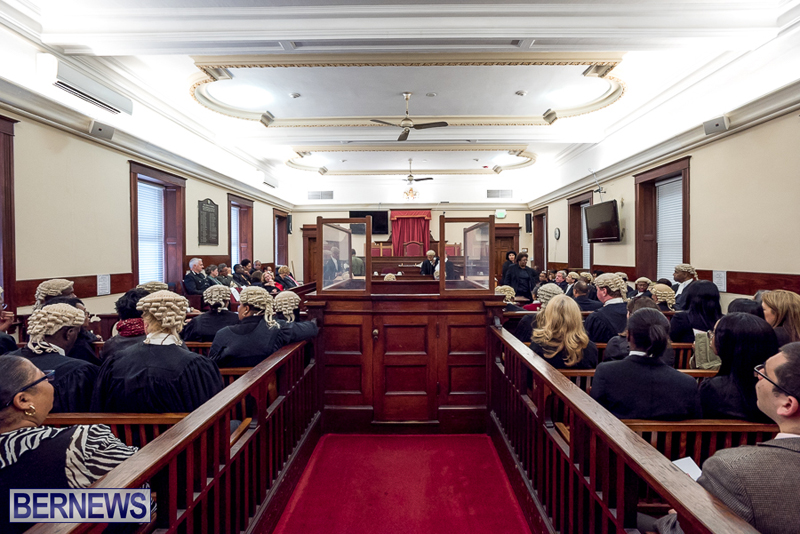
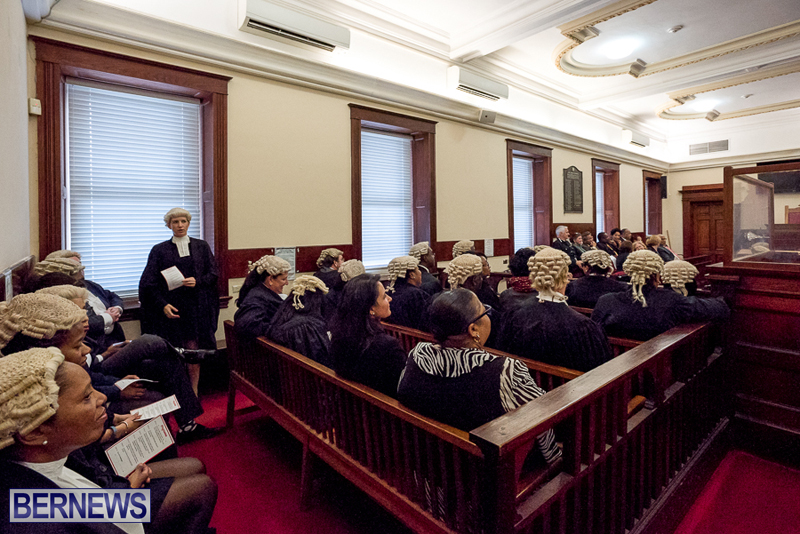
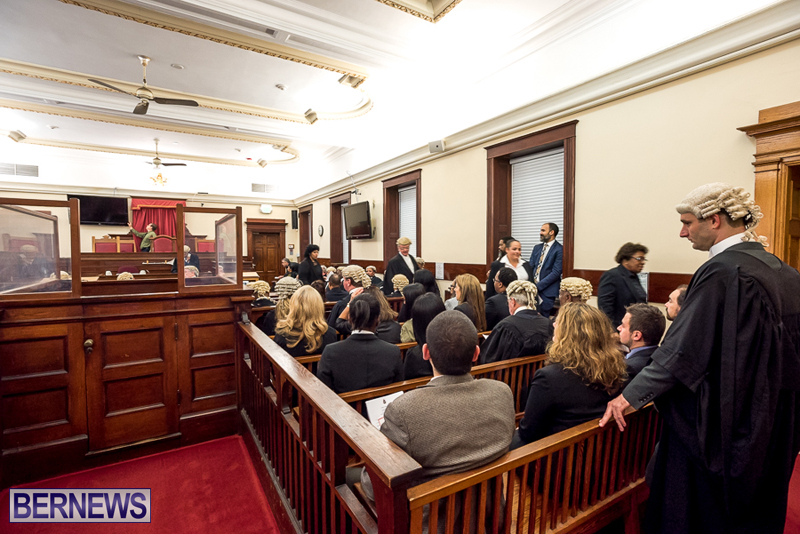
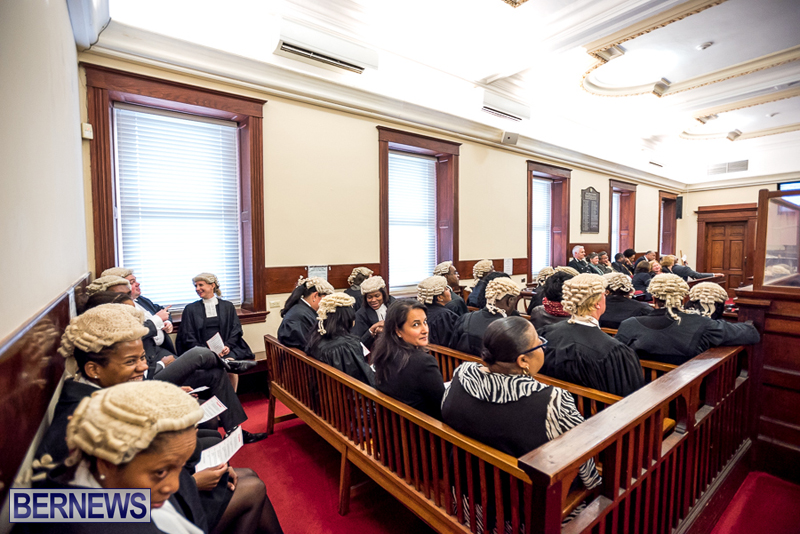
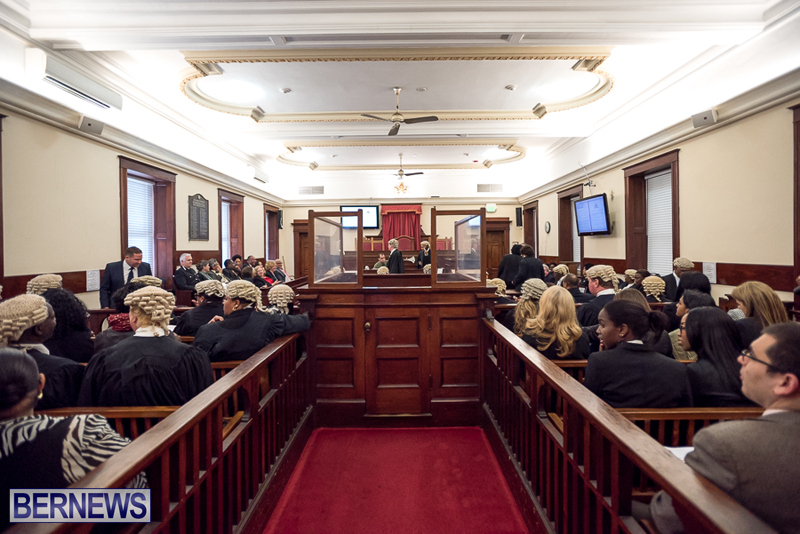
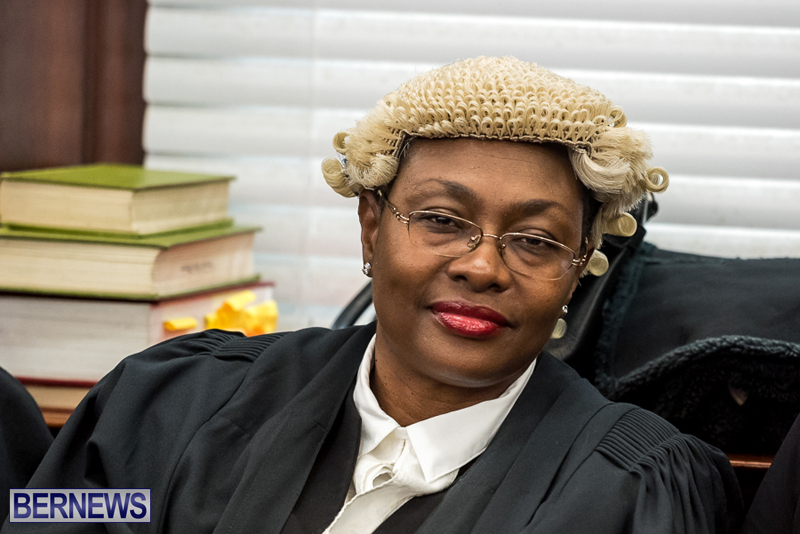
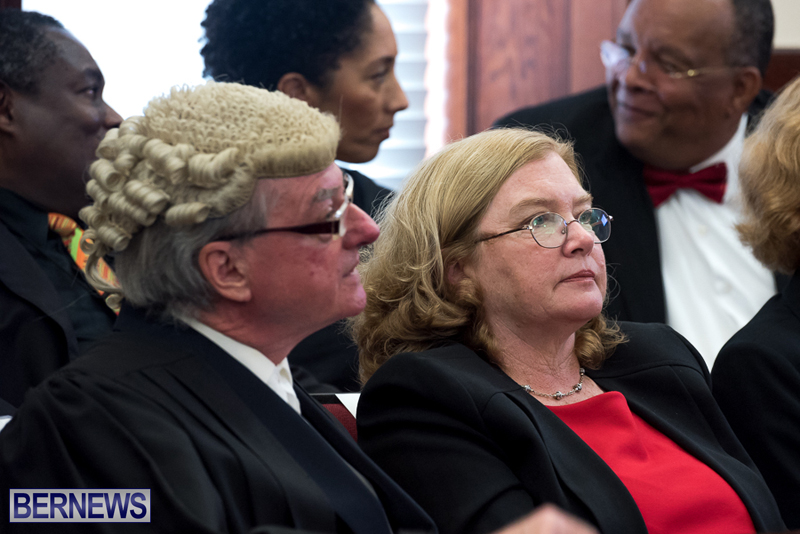
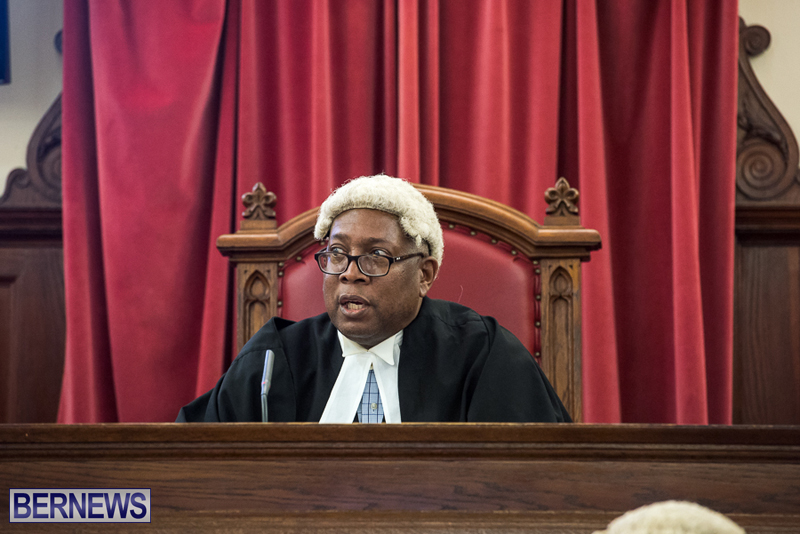
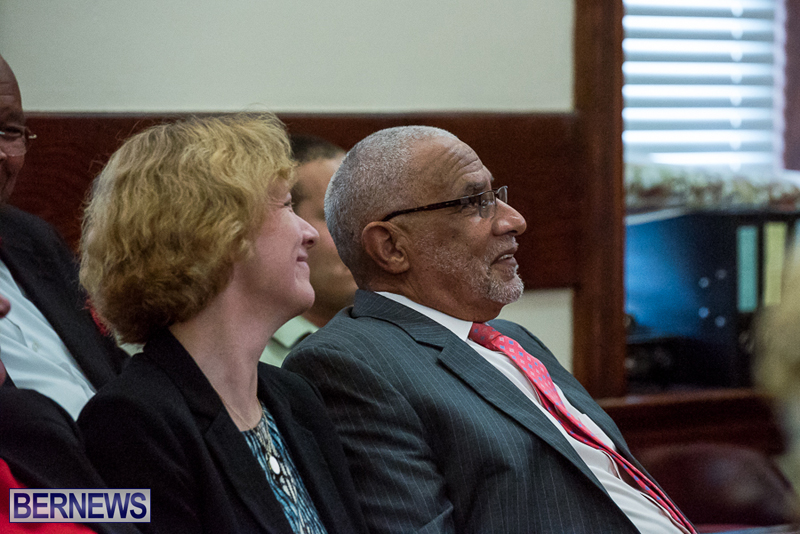
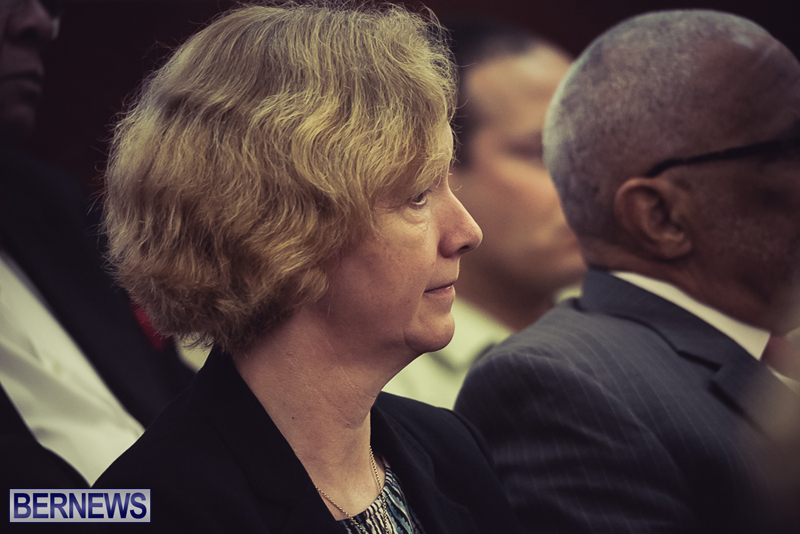
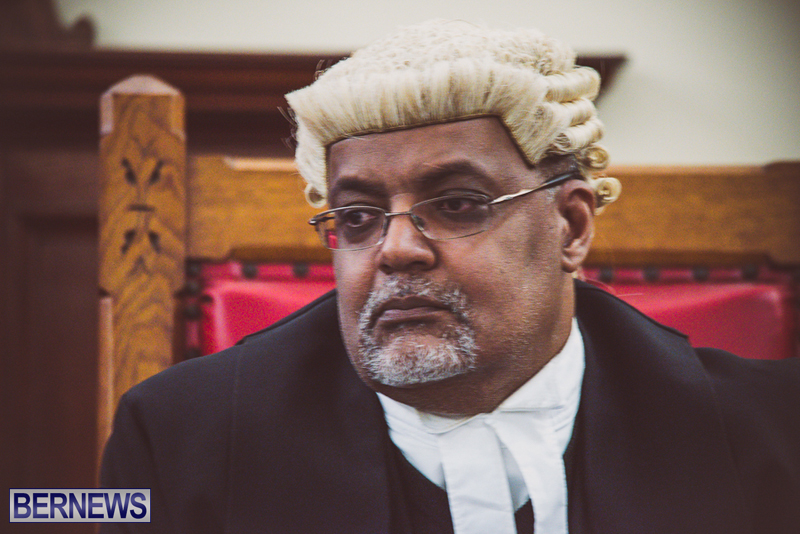
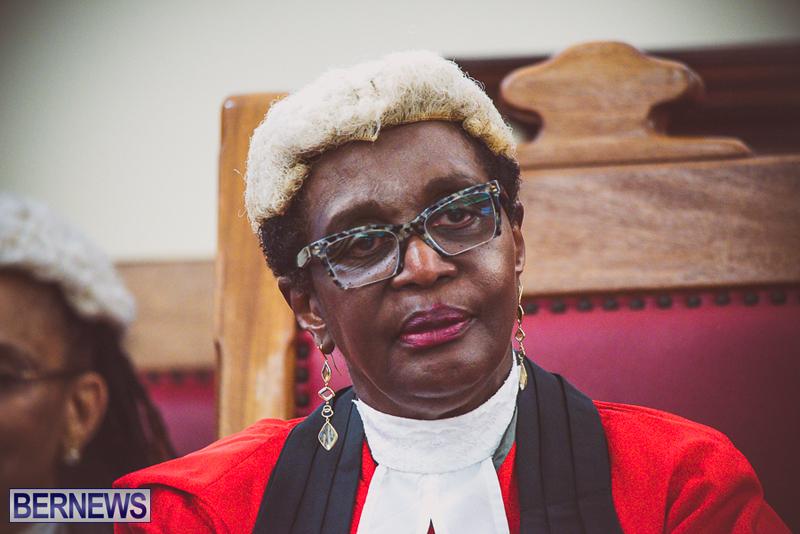
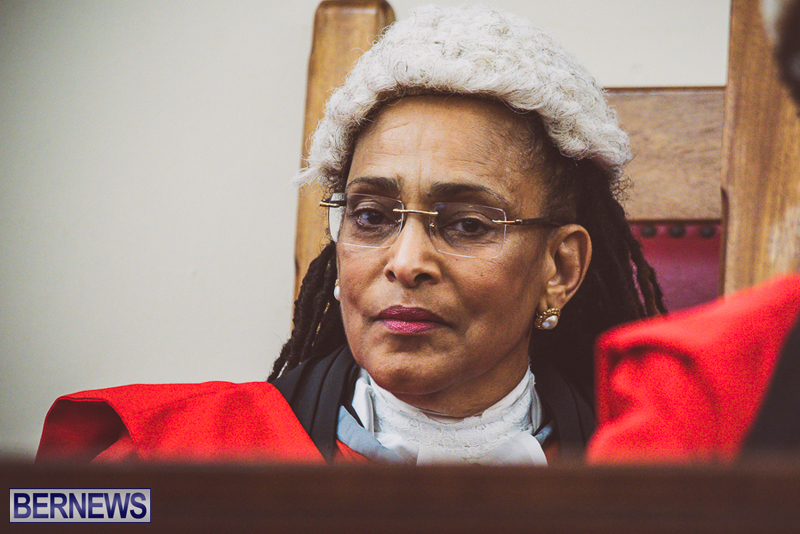

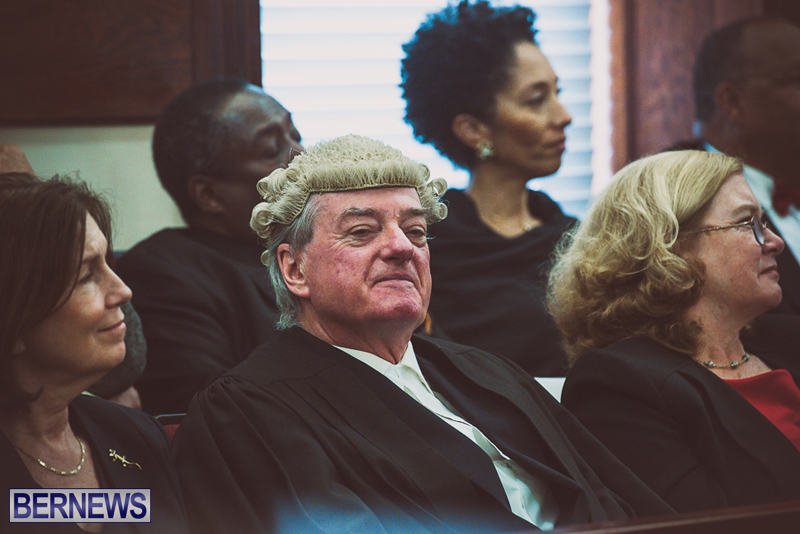
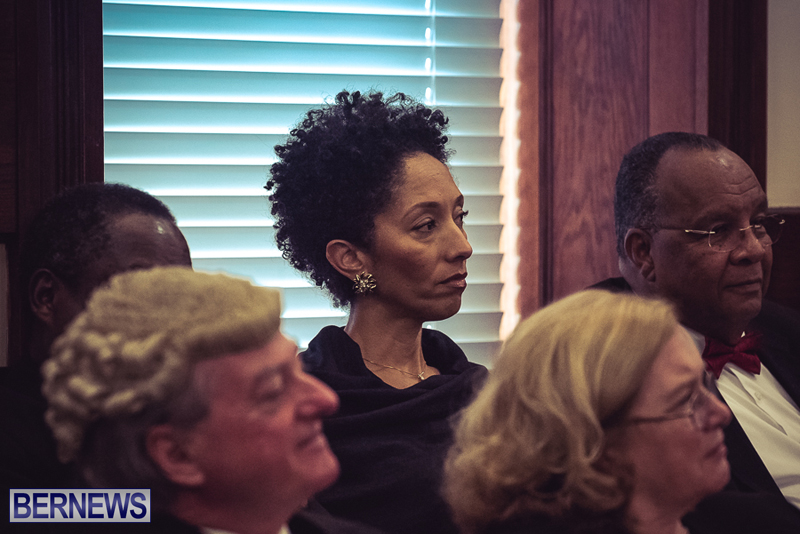
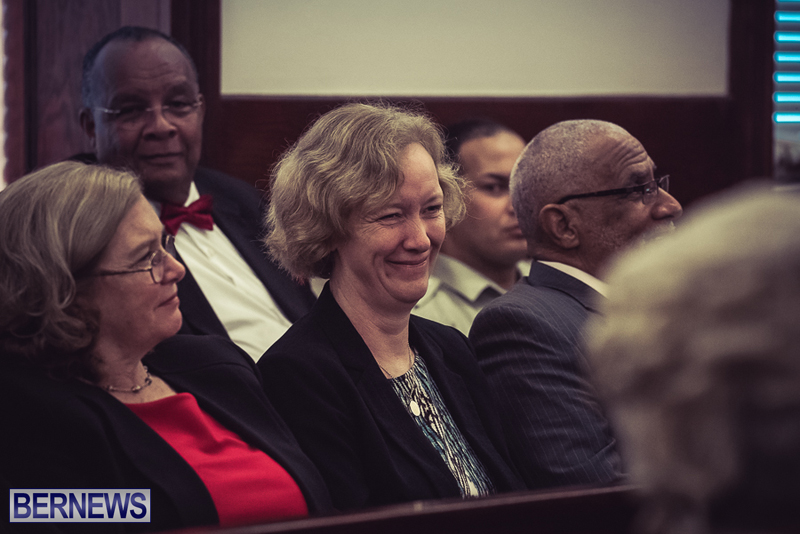
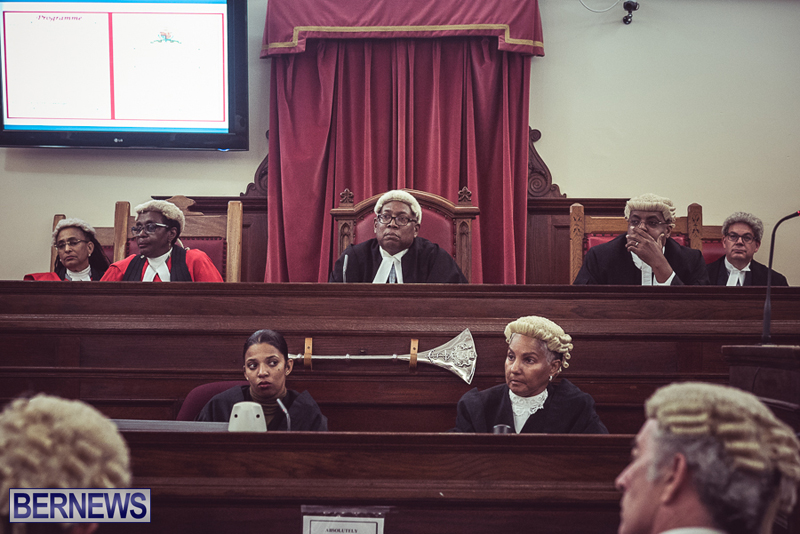

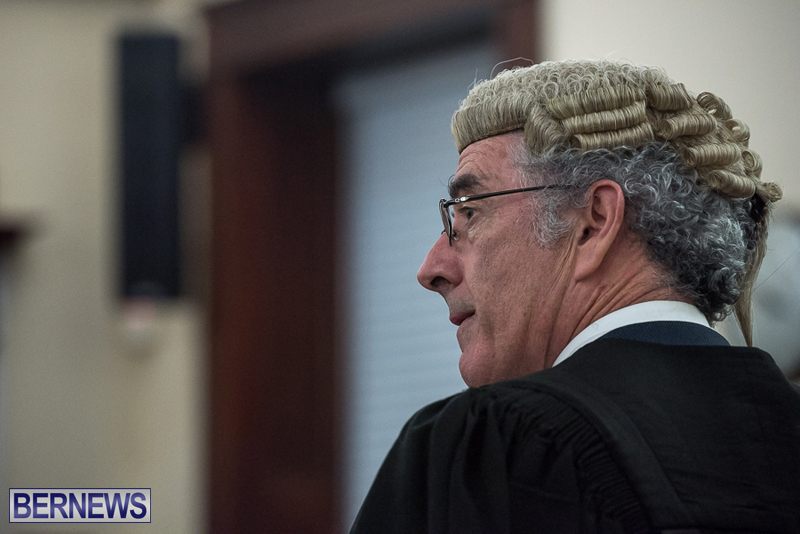
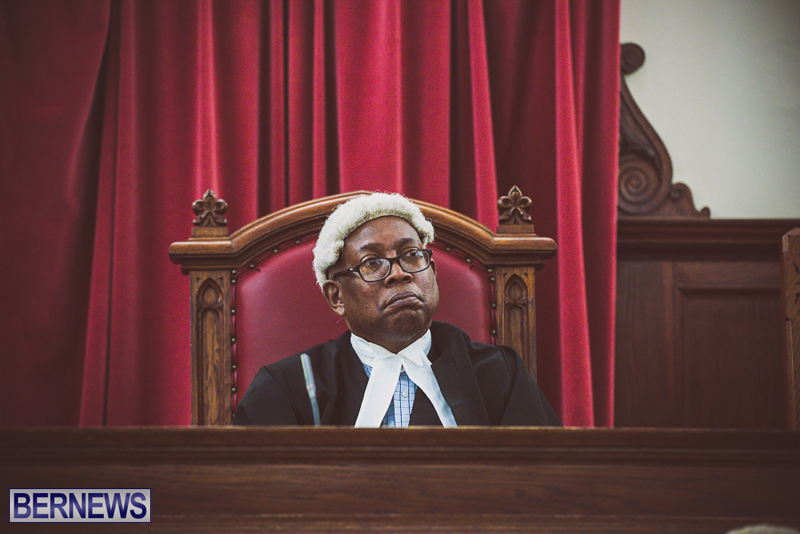

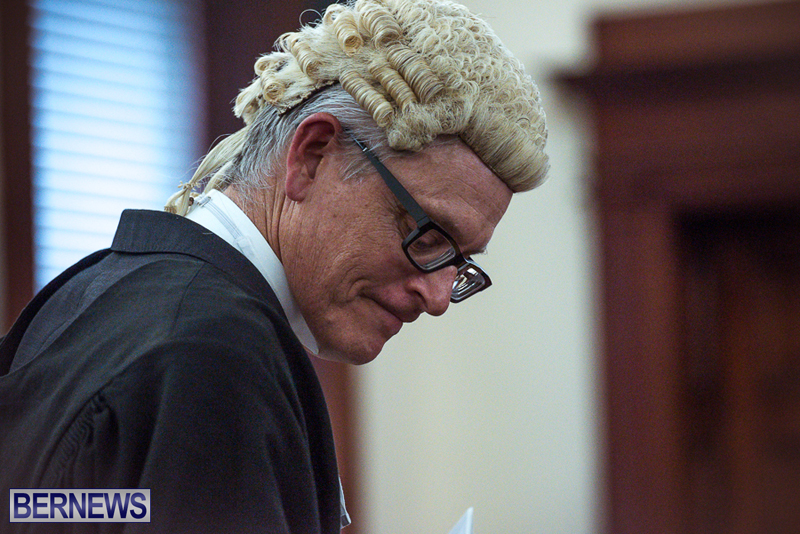
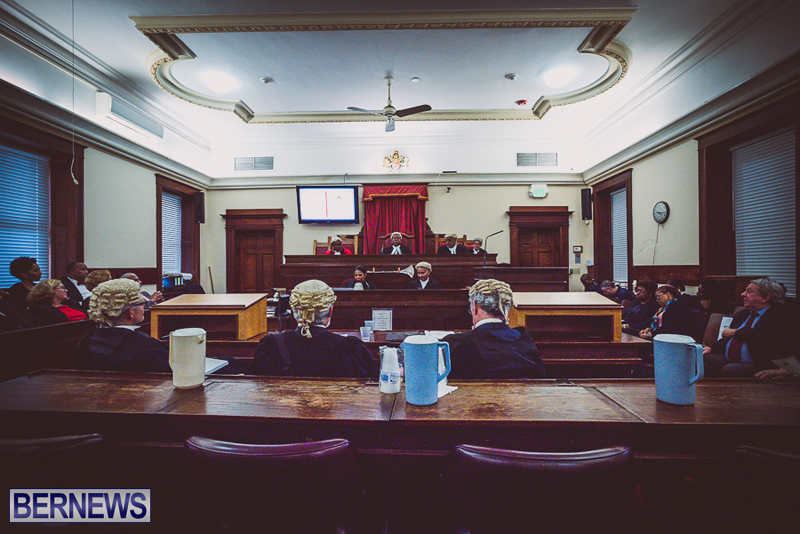
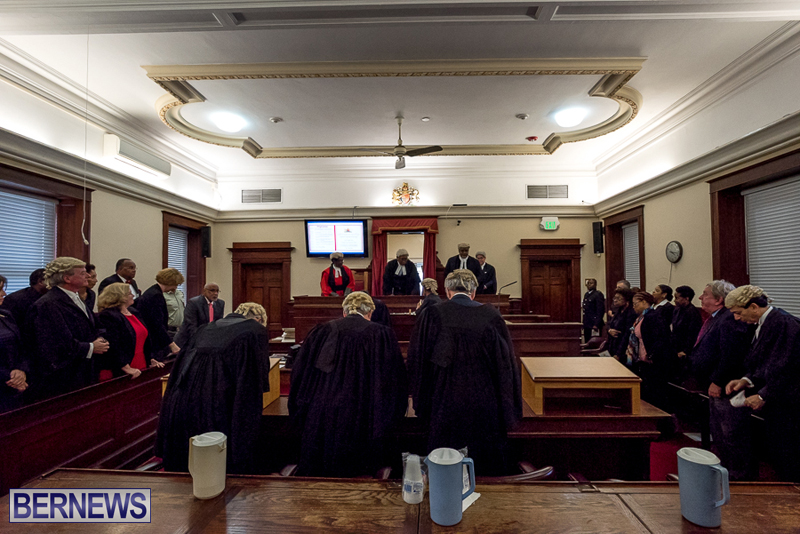


$$$$ especially the courts…
I see they’re still wearing the European wig, so the Law is still under Colonial dictates.